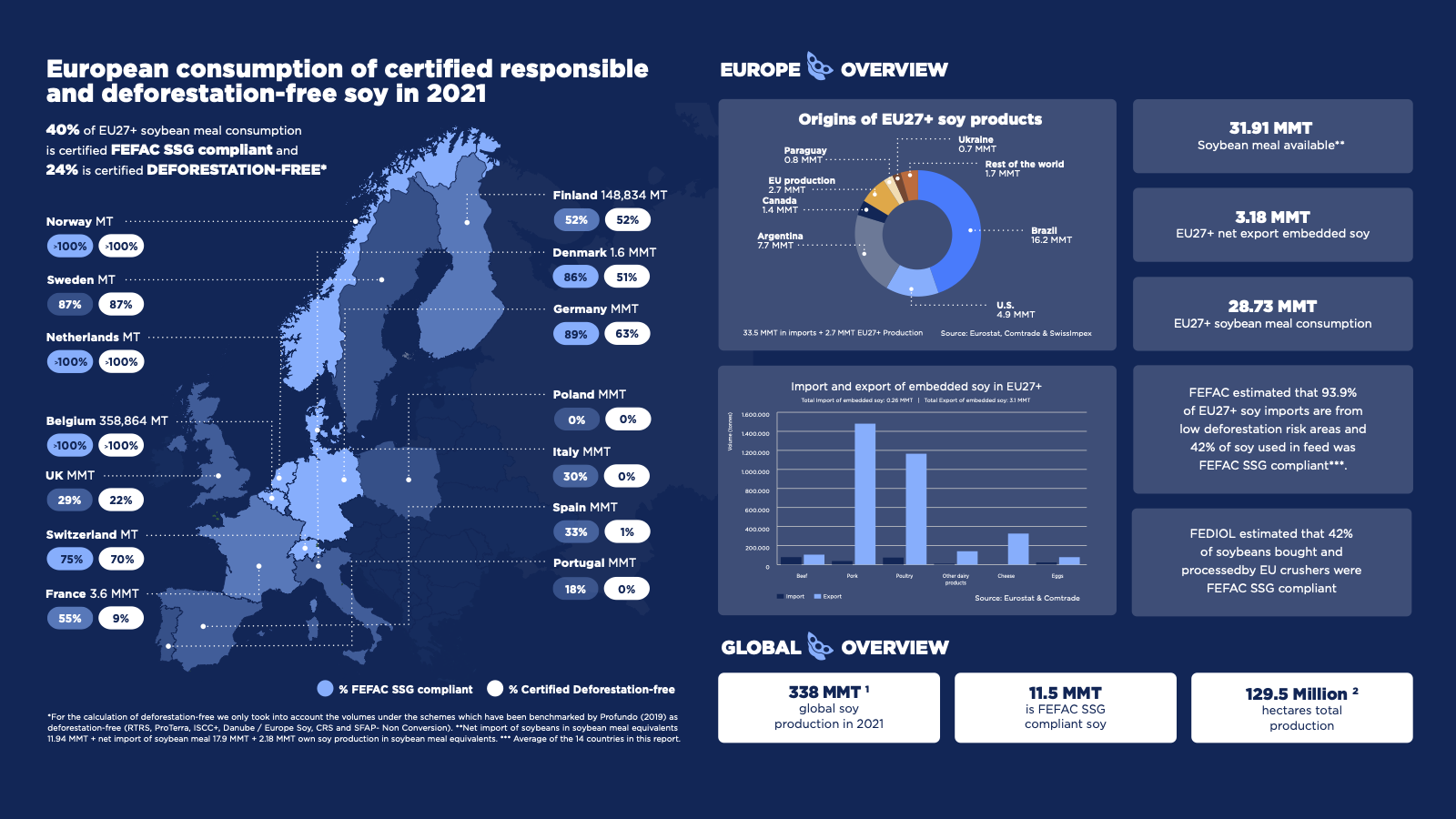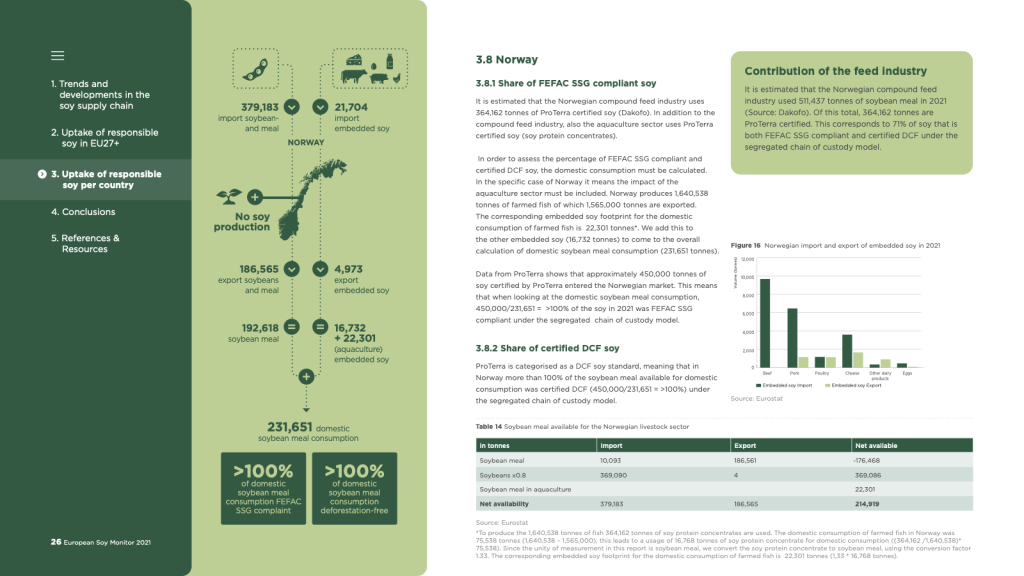
IDH: 100% of the soy consumed in Norway is deforestation-free.
Norway, the Netherlands, and Belgium are still the only countries in Europe that can boast 100 percent certified deforestation-free soy. At the same time, only 24% of the total amount of soy consumed in the EU/EEA is proven to be deforestation-free, according to the latest report from IDH – The Sustainable Trade Initiative.
From 30. december 2024 all risk commodities sold in the EU/EEA must be documented as deforestation-free, under the EU Deforestation Regulation (EUDR). The law applies to seven commodities, and soy is one of them. For soy imports to Norway, the Netherlands, and Belgium, the new law will not have much significance other than potential changes in reporting requirements.
However, the recent report “European Soy Monitor 2021” from the not-for-profit organization IDH – the Sustainable Trade Initiative shows that countries like Italy, Portugal, France, Poland, and Spain may face significant challenges in complying with the new requirement.
Declarations and certifications work
IDH has based its analysis on reported figures from various certification schemes and standards, such as RTRS, FEFAC SSG, Profundo, ProTerra Foundation, Donau Soja, and IUCN NL, for their extensive soy report. The 2021 report from IDH confirms, not surprisingly, that Denofa’s soybeans – and the soy-based fish feed supplied to the Norwegian aquaculture industry – remain completely free from deforestation and conversion. Five years ago, Norway was the only country with 100% deforestation-free soy., according to IDH’s criteria. Since then, at least The Netherlands Nederland and Belgium have reached the same level, and the percentage is increasing in a few other countries.
The Soy Moratorium, the agreement from 2006 aimed at preventing further deforestation of the Amazon, is specifically mentioned in this year’s IDH report. This included a so-called “cut-off date,” where several Brazilian soy producers committed not to produce soy in areas deforested after 2008. AMAGGI, which acquired Denofa some years later, was one of the companies that signed this deal. Since then, they have followed up on the agreement and provided thorough documentation of zero deforestation on their farms.
Combined with certifications like RTRS and Pro Terra, the Soy Moratorium agreement has been crucial for documenting that Denofa’s Brazilian soybeans have been guaranteed deforestation-free for many years.
According to IDH’s recent report, approximately 93.9% of all soy produced in the world comes from low-risk areas, but unfortunately, it’s Brazil (89% low-risk areas) that pulls down the average. Despite positive trends in several years following the Amazon Soy Moratorium agreement, according to IDH, there has been an increase in net deforestation in Brazil since 2013, which is concerning. The authors of the report also point out that other types of production, such as cattle farming, logging, and mining, appear to have a greater negative impact on the rainforest than soy production. soy production.
Good figures for Norway, but what about the rest of Europe?
Norway once again performs very well in the IDH report on deforestation-free soy, along with a handful of other countries. Sweden’s figures (87% deforestation-free soy) are also well aided by a large share of soy for feed being «Proterra certified via one plant in Norway» (= Denofa). From a broader perspective, however, the European Soy Monitor is not particularly pleasant reading: Several of the largest European countries can hardly show any documented deforestation-free soy. In countries like Italy and Portugal, there is hardly any demand for deforestation-free soy, as has been the case for a long time – and still is – in Norway.
IDH notes, however, that it is reasonable to assume that large volumes of soy consumed in Europe are deforestation-free, but that countries lack adequate procedures to track and document it according to current certifications.
This is the latest IDH report with data from before the plans for the EU Deforestation Regulation (EUDR) were announced (November 2021). Perhaps this report will become a benchmark for the future. Indeed, it will be interesting to see the impact of the EU Deforestation Regulation on next year’s report. – and especially future reports published after the new EU regulation has come into effect.
–––
